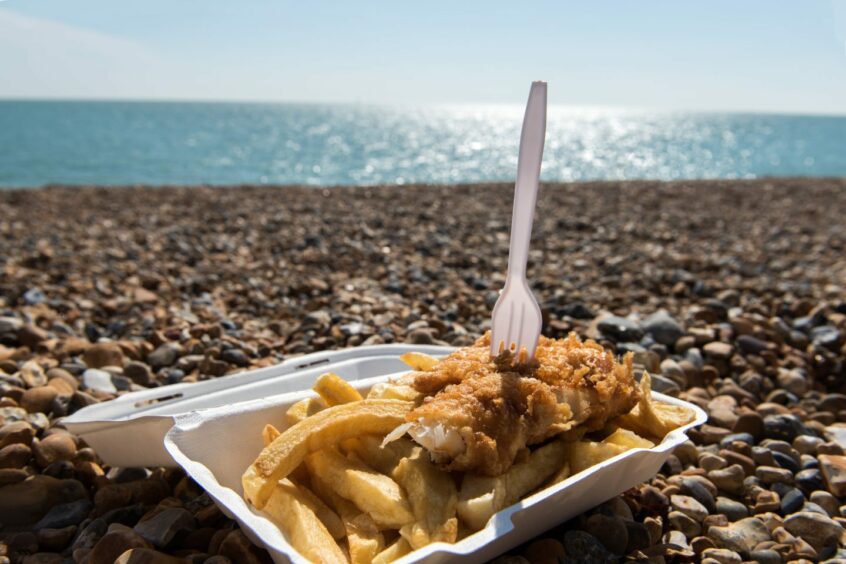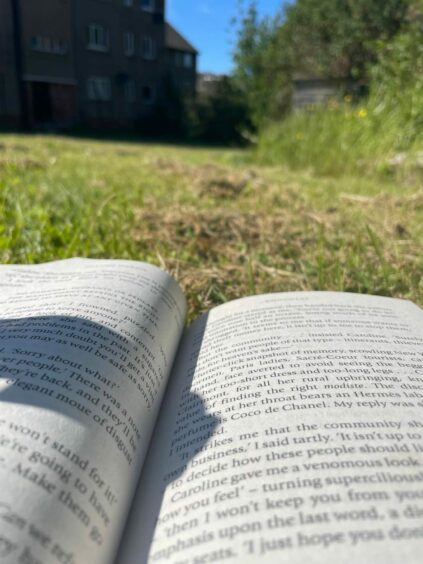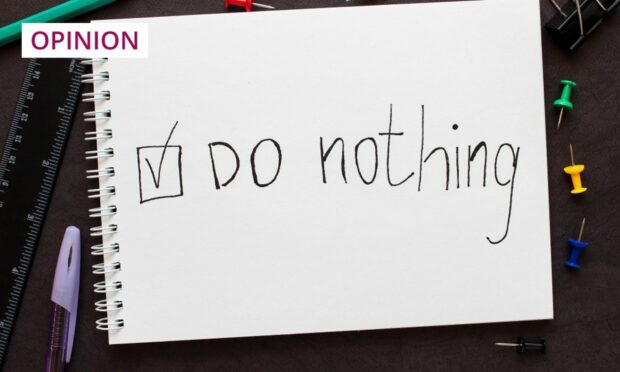Have you heard the news? It’s the biggest skiving week of the year.
According to some business boffins, the super-hot weather we’ve got going on means this week is ripe for folk pulling sickies left, right and centre.
Apparently sick days cost employers in the UK about £139 million per day. And it’s no surprise that when the sun peeks its head out one week a year, that number spikes.
So they’ve dubbed it the ‘biggest skiving week of the year’.
I think we’re supposed to feel a bit guilty about that. Pffft.
Unless you’re an essential worker – and I mean really essential, like medical and emergency services kind of essential – you should definitely try to skive a bit this week.

After all, everyone knows the best memories are made on a wee skive.
The joys of a skive
I skipped high school one day in six years – and I fell in love that day. It was a Thursday, I got in trouble, and I still count it as one of the best days of my life.
Just a couple of weeks ago, my buttoned-up best pal had a moment and hopped in his car, ditching the afternoon’s work. It was a beautiful day and he wanted some chips from Anstruther.
He sent me a picture of them, and the sunshine-studded sea. Said the chips tasted better than any he’d ever had before. I’ll bet they did, too.
He caught up with work the next day – it was nothing that couldn’t wait.
And despite what today’s instant-messaging, same-day-delivery, skip-the-queue mindset might tell you, there are very few things that really, truly can’t wait.
So why are we so resistant to admit we love a skive?
‘Skiver’ – the biggest working class insult
If the idea, or even the word ‘skive’, makes you instinctively recoil, you’re not alone.
Growing up working class as I did, there is a staunch sort of pride taken in relentless productivity. Folk where I’m from believe in giving your all; in graft above all else.
So to be called a skiver is a real insult; it implies a lack of grit, a worthlessness – and above all, a selfishness. Leaving your share of the work for other people to pick up the slack? That’s downright despicable.
I can vividly remember my dad proudly proclaiming to a group of friends that he’d never once been absent from his work in 20 years – even the day he dislocated his shoulder. (It’s permanently gammy, by the way.)
A woman I used to share a desk with at an old job told me, as she hacked and sniffed through her shift, that she had never called in sick and she wasn’t about to start now. (The rest of us played ping-pong with her cold for the next three weeks, passing it back and forth until we were a team of phlegmy zombies.)
The jig was up for me when, at 19, I sprained my ankle on my second shift working at a bar.
I was so scared of looking like I was at it, that I worked the rest of my 10-hour shift while my ankle slowly ballooned and turned purple under my trousers. I had to cut my shoe off when I got home.
That’s when I knew that skiver-mongering had gone too far. That the pervasive societal guilt about even being seen to be skiving, whether you are or not, could cause us to go to such obscene lengths of workplace martyrdom.
We needed a cultural reset.
And weirdly, we got one – in the form of Covid.
Lockdown: Livin’ in a skiver’s paradise
It’s clear that the pandemic and its lockdowns have changed the logistics of work forever, with working from home, flexitime and collaborative tech all now pretty well normalised across many industries.
But an arguably even bigger change to workplace culture is the shift in people’s attitudes towards their work.
Why do I do this?
Go to a beautiful place (like Ljubljana).
Spend all day in windowless conference rooms (which could be anywhere).
On the last night get a brief glimpse of what I have missed.
My advice to young scholars?
Skive more (but be sure to call it ‘networking’) pic.twitter.com/9oYvGJ23QY— Stephen Reicher (@ReicherStephen) July 8, 2022
We’re seeing a surge in demand for work-life balance in our communities. There are four-day working weeks being trialled. Singer Peter Andre has sparked a chat about bringing siestas into the UK working day.
It seems we’ve realised the value of time spent away from the desk, taking care of our bodies, connecting with loved ones, pursuing passions and making memories.
And that knowledge can’t be unlearned just because the world opened back up again.
Work can wait – life can’t
You shouldn’t have to sacrifice your wellbeing, free time or fun to preserve your reputation as a good worker.
Moreover, you do not have to be a good worker in order to be a good person. Work is only a part of life, not the whole thing.
It’s nice to care about it. It’s fine (and for survival these days, it’s usually necessary) to prioritise it; but equally, it’s fine not to sometimes.
So if you decide that this week, it’s more important to make a mermaid paddling pool for the kids in the back garden, or take a drive with someone special to a good picnic spot, or even just take an afternoon to start reading that novel you’ve been saving for the sunshine, I say good on you.
And if pulling a sickie is too big a livelihood risk, then find a way to skive just a little bit.
Take an extra long comfort break and feel the sun on your face. Tell your team to leave that last meeting and get some fresh air instead. Cut out 15 minutes early and get an ice cream on the way home. Walk the dog for five more minutes.
Don’t apologise. For once, don’t feel guilty.
Let’s turn ‘skiver’ into a compliment, just for this week. The sun’s out in Scotland, skiving’s good for the soul – and work can, almost always, wait until tomorrow.




















Conversation